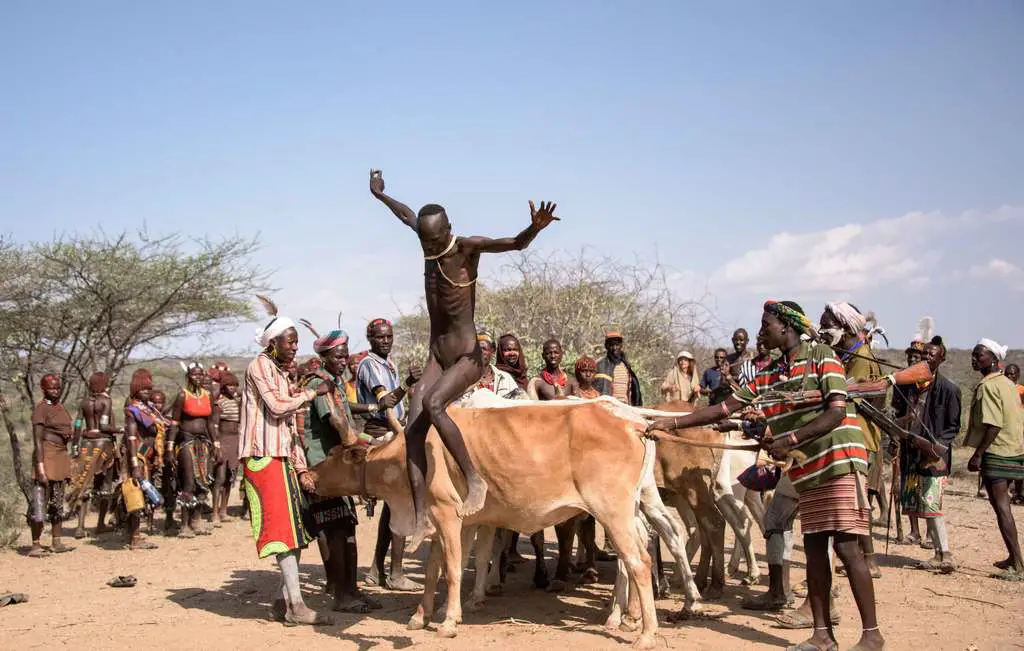The African continent has hit the headlines over its unique culture and a set of astounding traditions and Ethiopia has had a fair share of limelight for its culture.
In the Southwestern part of Ethiopia in the Omo Valley mainly inhabited by the Hamar/Hamer tribe, bull jumping is a tradition treasured by the community mainly made up of pastoralists. For every male initiate, this three-day event is the most important stage of their rite of passage and has been practised for the last three centuries.
A Hamer boy gets this rare opportunity to prove to the community more than himself, that he is ready to become a responsible man who can run a family whilst preserving the dignity of his family. Bull-jumping is not a small thing though even for the bravest of Hamer boys as he has to jump over the backs of 10 castrated bulls smeared with dung to make it even tougher for the initiate to run thorough them four times without fail.
Hold on, it is not as easy as it sounds but once he completes it successfully, he is a fully grown man who goes ahead to marry a girl of his family’s choice.
As tradition dictates, the eldest child in every family goes through bull-jumping to set a precedent for his siblings and the father or uncle – in the absence of his father – decides when the boy is of age to go through the rite of passage.
Once the father certifies that his son is ready for the task, he gives him boko (a short stick) which he is required to carry and walk to all his relatives’ homesteads and informs them that he is ready for the rite of passage and informs them of the

Bull-jumping tradition in Ethiopia. [Photo Culture Trip]
If he succeeds, he is accorded the title Maza. His father then chooses for him his first wife as he is allowed to marry as many as four wives. He then goes on to give 30 cows to the bride’s family as dowry as custom demands.
On the flip side, should he fail four times running on the backs of the bulls, he eats a humble pie and waits for one more year to go back and prove to his tribe how much of a man he is and what’s his measure of courage and bravery.
Read more:








